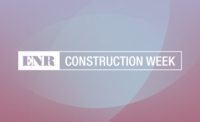USGBC Unveils LEED for Retail and LEED Volume Program
The U.S. Green Building Council announced the launch of LEED for Retail, its newest green building rating system, and the LEED Volume Program, a program designed to meet the certification needs of high-volume property developers.
The programs were unveiled at last week�s Greenbuild International Conference & Expo in Chicago. The LEED for Retail rating system recognizes the unique design and construction needs of this market sector, enabling forward-thinking retailers to integrate green building design, construction and operation into ground-up construction, retail interior and build-out projects.
Nearly 100 national and independent retailers and franchisees, including Bank of America, Best Buy, Chipotle, Wells Fargo, Citigroup, Kohl�s, LL Bean, McDonald�s, Pizza Fusion, Starbucks and Target, have participated in the pilot program since its launch in 2007, providing valuable feedback to inform the rating systems� development.
�In today�s market, savvy retailers see the value in building, designing and constructing environments that enhance the customer experience, nurture a more productive employee base, while saving precious resources,� says Scot Horst, senior vice president of LEED, USGBC. �LEED for Retail builds on the strengths of other commercial LEED rating systems while taking special care to address the distinct needs of retail spaces, from occupancy demands to waste streams, energy and water use.�
Also launched at Greenbuild was the LEED Volume Program, a certification program that was created to streamline and make the LEED certification process faster and more manageable for high-volume property developers such as national retailers, hospitality providers and local, state and federal governments.
Utilizing a prototype-based approach, the program enables large-scale organizational builders to deliver a consistent end product, thereby earning LEED certification faster and at a lower cost than would be possible with individual building reviews. �With a more cost-effective, streamlined process, the largest users of LEED are now able to make a larger impact on their building portfolio without compromising the technical rigor LEED has come to stand for,� says Horst. �This program enables us to move further faster to our goals of green buildings for all within a generation.�
�With Volume, we were able to streamline the LEED certification process and, by extension, even our own internal design and construction processes,� says Gina Edner, associate director of environmental sustainability for Starwood Hotels & Resorts, a Volume pilot participant. �We now have a comprehensive LEED roadmap.�
More than 60 Starwood hotels across almost all nine brands are pursuing LEED certification.
�The Volume Certification Program simplifies that process and dramatically increases the incentive for retailers like us to pursue certification,� adds Gary Saulson, director of corporate real estate, PNC Financial Services Group, Inc. Over 70 PNC projects have certified under the LEED Volume Program.
Acknowledging that organizations can best identify the uniformity and similarities of their projects, the program was designed to be flexible, allowing owners to define the criteria for grouping similar buildings and the prototype LEED credits they plan to pursue. The Volume approach also facilitates bulk purchasing and advance ordering of materials, reduced consultancy requirements, more efficient internal processes, greater speed to market, and more precise documentation of corporate sustainability efforts.
In 2011, USGBC will introduce Volume certification for Existing Buildings: Operations & Maintenance.
For more information, go to www.usgbc.org/leed/retail and www.usgbc.org/LEEDvolume.




